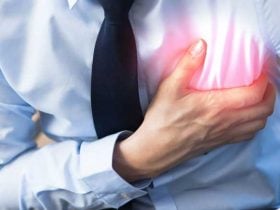Often briefly called heart failure, congestive heart failure is a chronic condition that affects the capacity of your heart’s muscles to pump blood efficiently. Congestive heart failure is the particular stage of heart failure when fluid builds up in the heart and prevents it from pumping well. [1] The condition is progressive.
The two lower chambers (ventricles) in your heart are responsible for pumping blood to your organs and tissues. When the muscles of your ventricles fail to efficiently pump blood, the kidney may respond by causing the body to retain fluid. The fluids can build up and affect various body organs, such as your lungs, liver, abdomen, and even your whole body. The body becomes congested.
The severity depends on how far the condition has progressed. Fatigue, frequent urination, and edema are among the early signs of this condition. [2] As it progresses, you may develop an irregular heartbeat, persistent cough, or shortness of breath due to pulmonary edema. Chest pain, rapid breathing, fainting are signs of severe congestive heart failure. If left untreated, it can result in death.
There are many reasons people develop this life-threatening condition. Sometimes it follows conditions that have damaged or weakened the heart. Other times, it happens even when your heart is not weakened. [3] Conditions that stiffen the ventricles can cause them to fail to fill heart with sufficient blood between each beat. This article discusses some common causes of congestive heart failure.
Coronary Artery Disease

Coronary artery disease (or coronary heart disease) is the most common type of heart disease. It is the leading cause of death for men and women in the United States. [4] It is also the most common cause of heart failure. This disease impairs blood flow in the coronary arteries that supply blood to the heart.
The impairment happens due to the buildup of plaque (cholesterol or fat deposits) on the walls of the arteries. This plaque buildup is called atherosclerosis. Plaque buildup in the arteries causes the arteries to become clogged and narrow. This can damage them and reduce or stop blood flow to the heart muscles, eventually resulting in heart failure.













